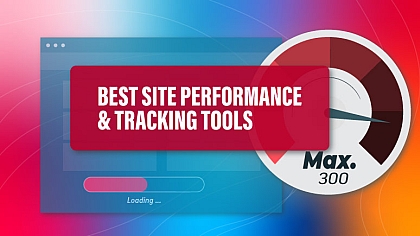
Data Retention Policies for Salesforce:
Balancing Storage and Backup Needs
In today's data-driven business landscape, Salesforce has emerged as a leading customer relationship management (CRM) platform, serving as a repository for valuable information. While Salesforce offers robust data storage, organizations must navigate the complexities of data retention to balance storage capacity, compliance requirements, and the need for Salesforce data backup.
Explores the importance of data retention policies for Salesforce and how to manage them effectively.
The Challenge of Salesforce Data Retention
Salesforce provides organizations with a powerful platform for managing customer data, leads, opportunities, and more. However, the platform's data storage comes with limitations, and organizations often face challenges related to:
- Storage Costs: Salesforce charges organizations based on the volume of data stored. As data accumulates, so do storage costs, making it crucial to manage data efficiently.
- Compliance Requirements: Many industries are subject to regulatory compliance, which includes specific data retention mandates. Organizations must ensure they meet these requirements while using Salesforce.
- Data Relevance: Storing irrelevant or outdated data can clutter your Salesforce instance, making it harder to find critical information and hampering system performance.
- Data Loss Risk: Relying solely on Salesforce for data retention can pose risks in the event of data loss, accidental deletion, or data corruption.
Benefits of Data Retention Policies
Data retention policies are a strategic framework for managing data throughout its lifecycle, from creation to disposal. When applied to Salesforce, these policies offer several key benefits:
- Cost Management: Organizations can optimize their storage costs in Salesforce by defining what data should be retained and how long.
- Compliance Compliance: A well-structured data retention policy ensures that your Salesforce instance aligns with industry regulations and legal requirements, reducing non-compliance risk.
- Improved Performance: Removing unnecessary data from Salesforce enhances system performance and speeds up retrieval processes.
- Data Protection: Data retention policies help safeguard data by ensuring that relevant information is protected and backed up.
Critical Elements of a Salesforce Data Retention Policy
Creating an effective Salesforce data retention policy requires careful consideration of various elements:
- Data Classification: Start by categorizing your Salesforce data based on its importance, sensitivity, and relevance. Not all data needs to be retained indefinitely.
- Retention Periods: Define how long each data category should be included in Salesforce. This should align with regulatory requirements and business needs.
- Data Archiving: Implement a strategy that moves less critical data to lower-cost storage options while keeping essential data accessible.
- Deletion Rules: Establish rules for deleting data that has met its retention period. Salesforce offers automation tools like "Auto-Archive" to facilitate this process.
- Backup and Recovery: Incorporate Salesforce data backup into your retention policy. This ensures that even deleted data can be recovered during data loss.
- Access Controls: Define who has access to different categories of data and implement role-based access controls to protect sensitive information.
Implementing a Salesforce Data Retention Policy
- Assessment: Begin by assessing your organization's data landscape within Salesforce. Identify what data is being stored, its relevance, and any compliance requirements.
- Legal Consultation: Depending on your industry, you may need to consult legal experts to ensure your data retention policy complies with relevant laws and regulations.
- Documentation: Create a comprehensive document outlining your data retention policy, including data categories, retention periods, archiving processes, and backup strategies.
- Communication: Educate your team about the data retention policy and its implications. Ensure everyone understands their roles and responsibilities in implementing and adhering to the procedure.
- Monitoring and Review: Regularly monitor your Salesforce instance to ensure compliance with the data retention policy. Adjust the policy as needed to accommodate changes in data volume, regulations, or business needs.
- Automation: Utilize automation tools within Salesforce to enforce data retention and deletion rules. Automation reduces the risk of human error and ensures consistency. For more insights into streamlining your data management, discover best practices.
Effective data retention policies are essential for organizations leveraging Salesforce as a critical CRM platform. Organizations can balance storage efficiency, compliance, and data protection by carefully managing data through categorization, retention periods, archiving, and backup. As data grows in volume and importance, a well-structured data retention policy becomes not just a best practice but a strategic imperative for Salesforce users.














